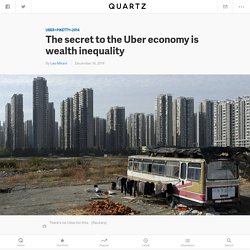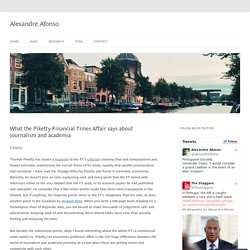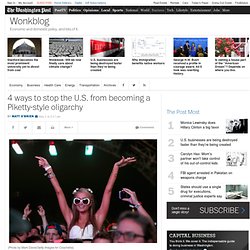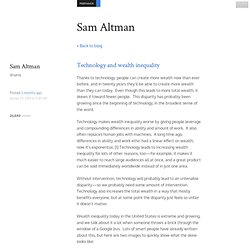

The secret to the Uber economy is wealth inequality. There is no silver bullet in medicine, but exercise comes close.

The benefits of physical activity are so far-reaching that, if you do nothing but get some gym time every day, you will live a healthier and longer life than most people. So when I decided to move closer to my office in London, the first thing I thought I’d change about my lifestyle was cycling to work. Yet, given all the harm we know air pollution can cause, does cycling actually help, or could it hurt? After all, I’m not breathing in the foul fumes of a truck when I’m sitting inside an air-conditioned train. I’m certainly not breathing them in deeply, as I would while huffing and puffing on my cycle. Air pollution kills more than 5 million people every year, yet there has been no analysis of the costs versus benefits of city cycling. “We are not disputing the fact that air pollution kills,” said James Woodcock, one of the authors of the study.
The study’s methodology is limited. What Role Does Technology Play in Record Levels of Income Inequality? Why Inequality Matters. A 700-page treatise on economics translated from French is not exactly a light summer read—even for someone with an admittedly high geek quotient.

But this past July, I felt compelled to read Thomas Piketty’s Capital in the Twenty-First Century after reading several reviews and hearing about it from friends. What the Piketty-Financial Times Affair says about journalism and academia. Thomas Piketty has issued a response to the FT’s criticism claiming that bad computations and flawed estimates undermined the overall thesis of his book, namely that wealth concentration had increased.

I have read the 10-page letter by Piketty and found it extremely convincing. Basically, he doesn’t give an inch, explaining each and every point that the FT raised with references either to the very dataset that the FT used, or to research papers he had published and uploaded. He concedes that a few minor points could have been more transparent in the dataset, but if anything, his response points more to the FT’s sloppiness than his own, as does another piece in the Guardian by Howard Reed. When you write a 600-page book drawing on a humongous mass of disparate data, you are bound to make thousands of judgement calls and adjustments. Keeping track of and documenting them almost takes more time than actually finding and analysing the data. The second difference is perhaps cohesiveness. 4 ways to stop the U.S. from becoming a Piketty-style oligarchy. (Photo by Mark Davis/Getty Images for Coachella)

Piketty’s Capital in a Nutshell. Piketty’s Capital in a Nutshell. Thomas Piketty doesn’t hate capitalism: He just wants to fix it. Thomas Piketty is not the anti-capitalist radical that his critics fear.

"The market economy," he tells me at the bar of the St Regis Hotel in downtown Washington, DC, "is a system that has a lot of merit. " (The location was chosen by the publicist for the English edition of his book; she admitted to me that perhaps it was a little too "top one percent," but it fit everyone's schedule nicely.) Piketty is very French, with several buttons on his shirt undone, a fairly thick accent, and a Bourdieu reference ready to drop in response to a question about whether economists overemphasize mathematical models over empirical analysis.
His book, Capital in the 21st Century (see our short guide), is being widely hailed as the most important economics volume of the decade and this week became the top-selling book on Amazon. It provides intellectual heft for some of the activist energy around Occupy Wall Street and other efforts to advance a post-Obama left-wing politics. Thomas Piketty. Thomas Piketty doesn’t hate capitalism: He just wants to fix it. Technology and wealth inequality. Thanks to technology, people can create more wealth now than ever before, and in twenty years they’ll be able to create more wealth than they can today.

Even though this leads to more total wealth, it skews it toward fewer people. This disparity has probably been growing since the beginning of technology, in the broadest sense of the word. Technology makes wealth inequality worse by giving people leverage and compounding differences in ability and amount of work. It also often replaces human jobs with machines. A long time ago, differences in ability and work ethic had a linear effect on wealth; now it’s exponential. [1] Technology leads to increasing wealth inequality for lots of other reasons, too—for example, it makes it much easier to reach large audiences all at once, and a great product can be sold immediately worldwide instead of in just one area. [Critical of Piketty] Google’s Schmidt Says Inequality Will Be Number One Issue For Democracies. Google’s Eric Schmidt told a SXSW audience in Austin today that Google is “very, very worried about” the growing financial inequality and subsequent protests in San Francisco.

“The average person there has benefited from the automation, the globalization, the technology,” he said, and predicted that inequality will become “the No. 1 issue of democracies.” Schmidt was promoting his book, The New Digital Age, with his co-author, Jared Cohen, in a wide-ranging interview on privacy, government, and the social impacts of technology. Google has been embroiled in the unrest of growing financial inequality, with San Francisco activists targeting the company’s private charter buses as a symbol of the social divide.
A few economists we spoke to believe that the tech industry’s presence in San Francisco has generally buffered the city’s middle class from the ravages of recession, but skyrocketing rents have forced out many long-time residents.